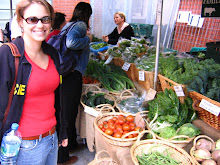It's been a good week for the traffic in banned foods. I bartered my illegal backyard eggs for illegal backyard honey from the Normaltown Beekeeper and I lucked into a source of raw m__. (Woohooo! Let the cheesemaking begin!) In the wake of the supreme satisfaction I got from both of these transactions, I decided three things.
1) the banning of backyard, homescale, out-of-the-system food production is not only unethical, it's a violation of human rights. According to the Universal Declaration of Human Rights, Article 3, I have the right to life, liberty and security of person. Given that waterboarding is legal and article 5 guarantees the right to be free of torture, I understand that I won't get much traction with this argument. Having said that, somewhere, I am guaranteed the right to provide for myself (i.e., life) when it doesn't hurt anybody else (chickens don't, bees don't, raw m__ doesn't). I have a right to liberty, which means I am free to do what I wish on my private property (as long as I don't hurt others), and I have a right to liberty in my economic transactions. Suck it, neoliberals. Last, salmonella-contaminated eggs and the like, threaten the security of my person, *from the inside*, and I have a right to alternatives that don't threaten my health, or the health of my unborn baby. (Just try it, Bobby Franklin).
2) the participation in the purchase and sale of food is the stupidest thing humans have ever done. (don't feel offended...I have been doing this for 35 years...and it's not too late to get smart). Buying and selling food not only stripped us of useful skills that could be exchanged for food (for more on this, see K. Marx, Capital, vol 1), it also handed over all of our rights in the food system to the brokers who buy and sell. For the most part those jokers who make money on transactions don't give a damn what goes into your body. The only reason they pretend to care is because, legally, they have to. This means that as long as they don't get caught, they will encourage (even demand) the farming practices that get the salmonella in your egg and the e. coli in your milk. Technical fixes, like pasteurization, are unnecessary when proper farming practices are followed, but they funnel a lot of profit toward the processors (oh, right the jokers who profit from transactions...). Let's get out of this system. Now. Here's how.
3) instead of a transactional system based on money, we need to have a reciprocal exchange system based on calories. I am borrowing this partly from the solar economy literature, but I also appreciate the beauty of it's logic. First, commodities like coffee that usually come at great cost to human and ecological life, would be worth nothing since they have no calories. Therefore there would be no incentive to ship it halfway across the world. (Coffee addicts, I don't envy you the headache you will have when you wake up from the dream of global capitalism. In the meantime, sleep well and dream of large cups of coffee). Second, calorie dense foods like meat would be very expensive, thus, limiting their consumption. I am a carnivore (see the 1 chicken, 10 meals blog post), but I do recognize the incredible waste, ecological devastation and animal cruelty caused by conventional meat production. Third, low calorie, nutrient-dense foods, like kale, would be widely available (a bit like 1 dollar bills are ubiquitous) and easy to get, which is not the case now. They are incredibly easy to grow as well, so they may even disappear from circulation eventually, as we get smarter. Fourth, grains and sweeteners would be very expensive, and would force us to figure out ways to grow our own, barter for them, grow them cooperatively or find substitutes, like potatoes and honey.
I could go on, but you get the picture. We need to move toward a steady-state food system in which the inputs are equal to the outputs. One way to do this, is to start increasing our awareness of the calories in our food and use this as a basis of exchange. We can all become growers of something and exchange this on the basis of calories. Or we can examine the kind of work we do, and the calories we expend doing it, and exchange food on the basis of this. Physical labor has sustained us for millennia and should be the basis of our health and vitality of our society and economy.
So, if I follow my own logic, I owe the Normaltown Beekeeper a dozen eggs. I exchanged a dozen eggs for a pint of honey this week. I should have given the beekeeper two dozen eggs if we follow the calorie math. A dozen eggs has about 1000 calories, while a pint of honey has 2000 calories. Now that I know, I'll catch up with him next time. I had to pay for my raw m__, only because I don't have anything to give the farmers that they don't already have. I've traded skills for money, and, I realize now, that that's a real shame. But...maybe they would like some ricotta cheese...
Make cheese, make a difference.
Sunday, March 6, 2011
Subscribe to:
Post Comments (Atom)

No comments:
Post a Comment